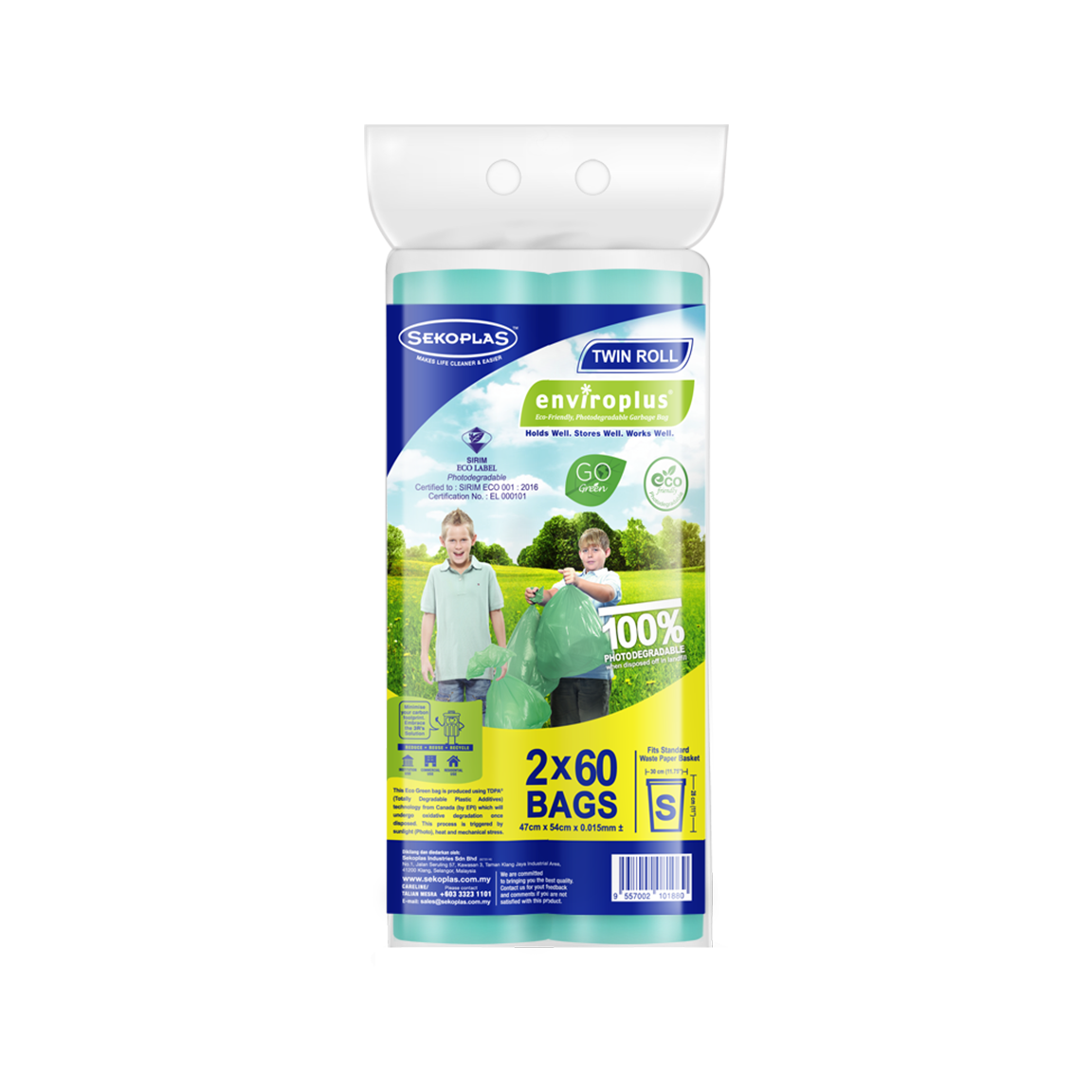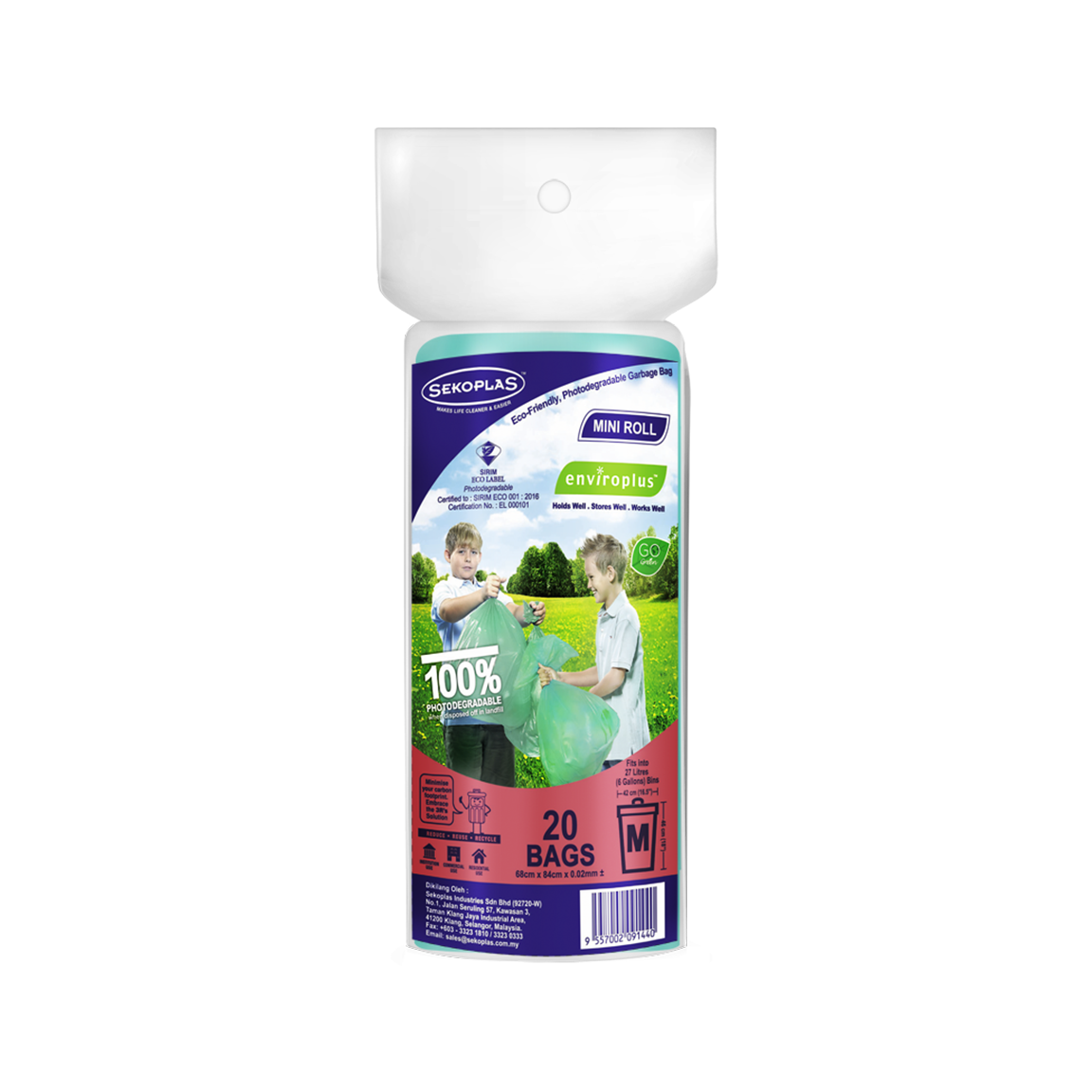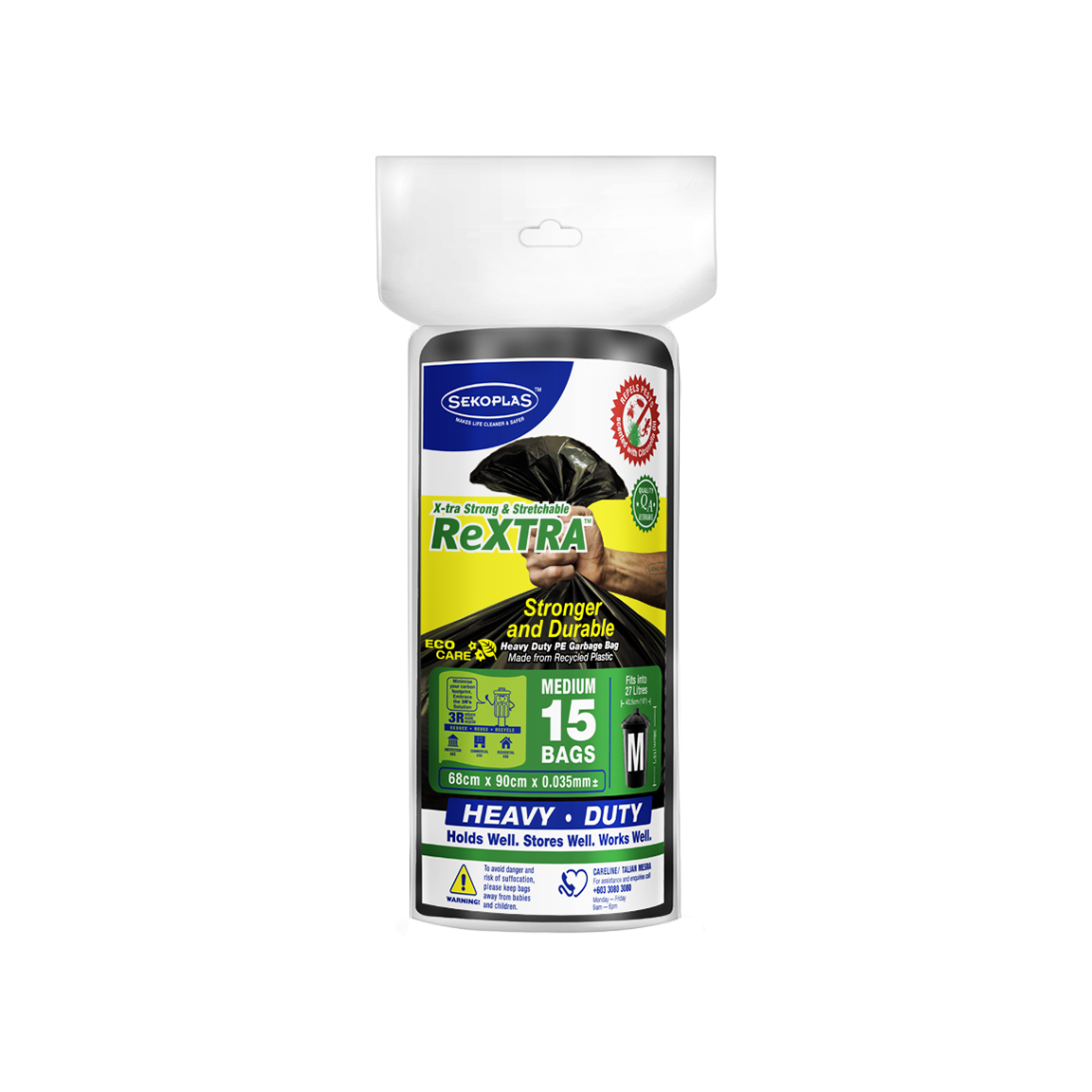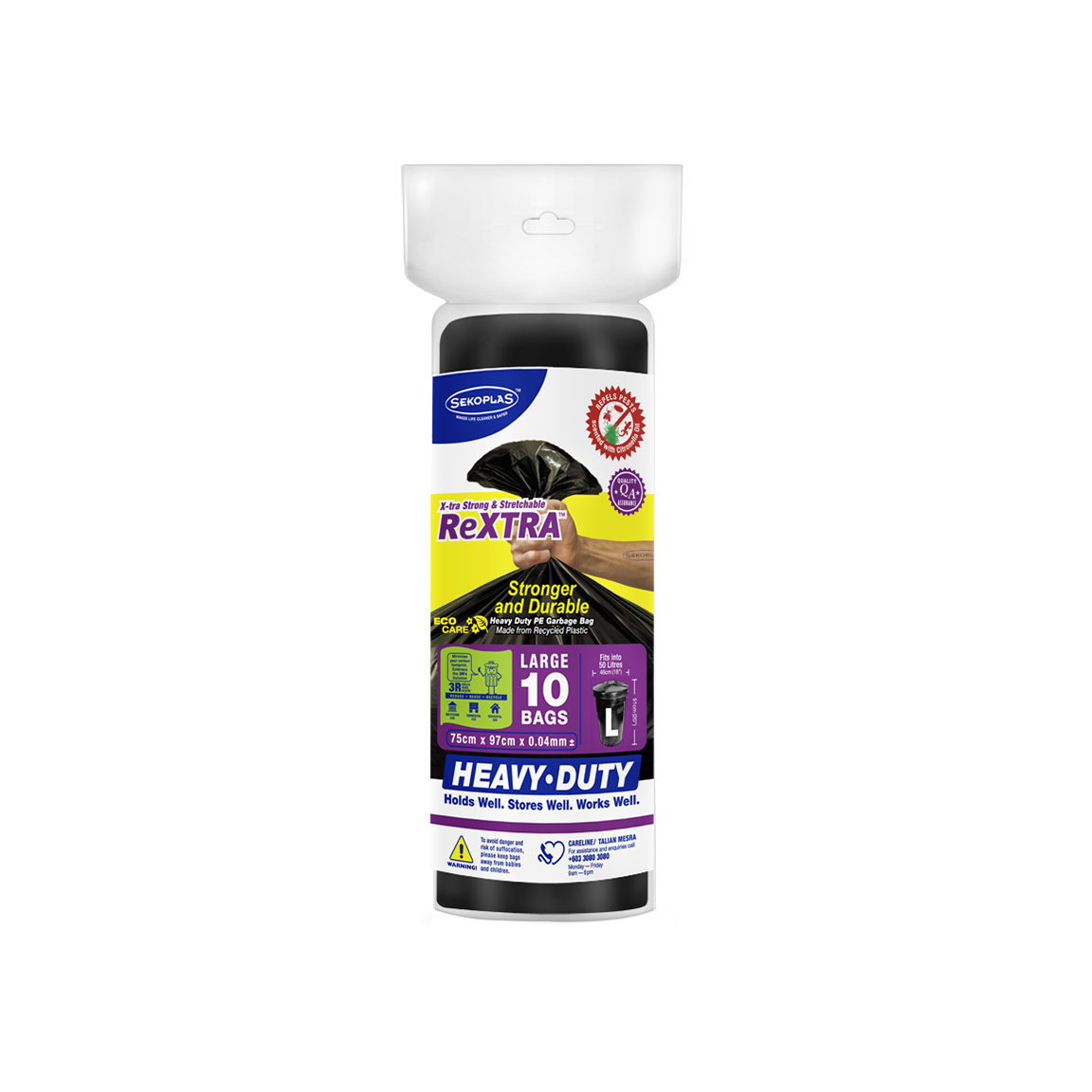Articles

Navigating The Garbage Labyrinth: Biodegradable vs. Recyclable vs. LDPE Garbage Bags
In today’s environmentally conscious world, responsible waste management takes centre stage. A seemingly simple task like choosing a garbage bag can raise questions about sustainability and eco-friendliness. This article delves into the world of biodegradable, recyclable, and LDPE garbage bags, equipping you to make informed decisions for a greener tomorrow.
Biodegradable Garbage Bags: Nature’s Embrace
As the name suggests, biodegradable garbage bags break down naturally by microorganisms into harmless elements like water, carbon dioxide, and biomass. These bags are made from plant-based materials like corn starch, vegetable oils, or cellulose, and offer a compelling alternative to traditional plastic options.
Benefits of Biodegradable Garbage Bags:
- Reduced Landfill Waste: Biodegradable bags decompose in a controlled composting environment, minimizing the burden on landfills that overflow with traditional plastic.
- Renewable Resources: Plant-based materials are renewable, unlike petroleum-derived plastics, promoting resource sustainability.
- Lower Carbon Footprint: The production of biodegradable bags typically requires less energy compared to conventional plastic, resulting in a smaller carbon footprint.
Things to Consider with Biodegradable Bags:
- Composting Requirements: Not all biodegradable bags are created equal. Some require specific industrial composting facilities with controlled temperatures and humidity, which may not be readily available everywhere.
- Strength and Durability: Compared to LDPE bags, biodegradable options might offer slightly less strength, especially when dealing with heavy or sharp objects.
- Cost: Biodegradable bags often come at a premium price due to the relatively new technology and limited production compared to traditional plastics.
Who Should Use Biodegradable Garbage Bags?
- Households with a significant amount of organic waste suitable for composting (e.g., food scraps, yard waste)
- Businesses committed to sustainable waste management practices
- Individuals seeking eco-friendly alternatives for everyday waste disposal
Enviroplus™ is a line of biodegradable garbage bags that use TDPA™ additives from EPI®, Canada. These additives help the plastic break down faster when exposed to sunlight, heat, and mechanical stress. Enviroplus™ bags come in two thicknesses, four sizes, and various packing options for your convenience.
Recyclable Garbage Bags: A Second Life for Plastic
Recyclable garbage bags are crafted from high-density polyethene (HDPE) or linear low-density polyethene (LLDPE), allowing them to be reprocessed into new plastic products. This reduces reliance on virgin plastic materials and promotes a circular economy.
Advantages of Recyclable Garbage Bags:
- Reduced Dependence on Virgin Plastic: Recycling existing plastic lessens the demand for new plastic production, minimizing environmental impact.
- Energy Conservation: The recycling process generally consumes less energy compared to virgin plastic manufacturing.
- Potential Cost Savings: Recycling programs might offer rebates for using designated recyclable garbage bags, making them a cost-effective option.
Points to Ponder with Recyclable Garbage Bags:
- Limited Availability: Recyclable garbage bags may not be readily available in all regions due to varying recycling infrastructure.
- Contamination Concerns: Recyclable bags must be clean and free of food residue or contaminants to ensure successful recycling.
- Downcycling vs. Recycling: Recycled plastic often gets “downcycled” into lower-quality products, raising questions about its long-term sustainability.
Who Should Utilize Recyclable Garbage Bags?
- Individuals with access to well-established recycling programs that accept HDPE or LLDPE bags
- Households generating primarily dry waste suitable for recycling (e.g., paper, cardboard)
- Businesses with a strong focus on responsible waste management
RePLUS™ introduces coreless rolls of recyclable garbage bags to Malaysia, making it convenient for eco-conscious consumers. These strong and stretchy bags are made from a special high-density blend and come in a blue colour to easily identify recyclables, streamlining the waste sorting process for households.
LDPE Garbage Bags: The Traditional Choice
Low-density polyethylene (LDPE) is a commonly used plastic for various applications, including garbage bags. These bags offer durability, affordability, and readily available options.
Pros of LDPE Garbage Bags:
- Strength and Versatility: LDPE bags are known for their strength and ability to handle heavy or sharp objects without tearing easily.
- Wide Availability: LDPE bags are readily available in most stores, offering a convenient and affordable option.
- Waterproof and Leakproof: These bags provide a reliable barrier against moisture and leaks, making them suitable for wet or messy waste.
The Downside of LDPE Bags:
- Environmental Impact: Traditional LDPE bags are not biodegradable and contribute to plastic pollution in landfills if not disposed of properly.
- Dependence on Fossil Fuels: LDPE is derived from petroleum, a non-renewable resource, raising concerns about long-term sustainability.
- Limited Reusability: LDPE bags are typically single-use, contributing to overall plastic waste generation.
Who Should Use LDPE Garbage Bags?
- Individuals with limited access to biodegradable or recyclable alternatives
- Situations requiring strong, leakproof bags for specific waste disposal needs (e.g., construction debris)
- Short-term waste containment applications
ReXTRA™ heavy-duty LDPE garbage bags are made from industrial-strength, thick gauge Low-Density PE (LDPE) designed to be extra strong and stretchy for handling heavy-duty tasks. They can accommodate oversized loads without tearing or leaking, making them ideal for warehouses, commercial kitchens, or outdoor projects.
The table below summarizes the biodegradable, recyclable and LDPE garbage bags:
| Feature | Biodegradable Garbage Bags | Recyclable Garbage Bags | LDPE Garbage Bags |
| Material | Plant-based materials (corn starch, vegetable oils, cellulose) | HDPE plastic | Low-density polyethylene (LDPE) |
| Biodegradability | Yes, breaks down in specific composting environments | No, but can be recycled | No, not biodegradable but can be recycled |
| Recyclability | No (usually not accepted in recycling programs) | Yes, if clean and accepted in local programs | Yes |
| Strength & Durability | Lower strength, may tear with heavy objects | Moderate strength | High strength, good for heavy or sharp objects |
| Cost | Generally more expensive | Most affordable option | Higher costs and higher durability |
| Environmental Impact | Lower impact, reduces landfill waste | Potentially lower impact through recycling 3Rs | Potentially lower impact through recycling 3Rs |
| Composting Requirements | Requires specific industrial composting facilities | N/A | N/A |
| Availability | Increasing availability, but may be limited in some areas | Widely available | Widely available |
Beyond the Bag: Additional Considerations
Choosing the right garbage bag is just one step in responsible waste management. Here are some additional tips to minimize your environmental footprint:
- Reduce: Reduce waste generation at the source by buying less, reusing items, and composting food scraps.
- Reuse: Consider reusable containers or bags for items like grocery shopping or pet waste.
- Recycle: Ensure you’re recycling correctly by understanding your local program’s guidelines and sorting your waste segregation accordingly.
- Support Sustainable Businesses: Opt for companies committed to sustainable practices, including eco-friendly packaging and responsible waste management.
By making informed choices and adopting responsible waste habits, we can collectively contribute to a cleaner and greener planet.
Frequently Asked Questions (FAQs)
Are biodegradable and compostable bags the same?
Biodegradable simply means the material breaks down naturally over time. Compostable bags are a specific type of biodegradable bag that decomposes quickly and safely in a controlled composting environment.
Can I put biodegradable bags in my home compost bin?
Not necessarily. Most home composting systems don't reach the high temperatures required for biodegradable bag breakdown. Check the specific bag's composting requirements before adding it to your home bin.
How can I tell if a garbage bag is truly biodegradable?
Look for certifications from reputable organizations like BPI or ASTM International on the packaging. These certifications indicate the bag has undergone rigorous testing to verify its biodegradability claims.
The Final Word
Choosing the most eco-friendly garbage bag depends on your specific needs and local waste management infrastructure. By understanding the advantages and limitations of biodegradable, recyclable, and LDPE bags, you can make informed decisions that contribute to a more sustainable future. Remember, the most impactful choice is often the one that reduces waste generation in the first place. So, embrace the 3Rs (Reduce, Reuse, Recycle) and make every step count towards a healthier planet! Contact us should you need more info!




